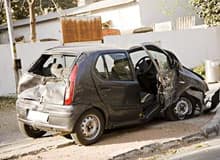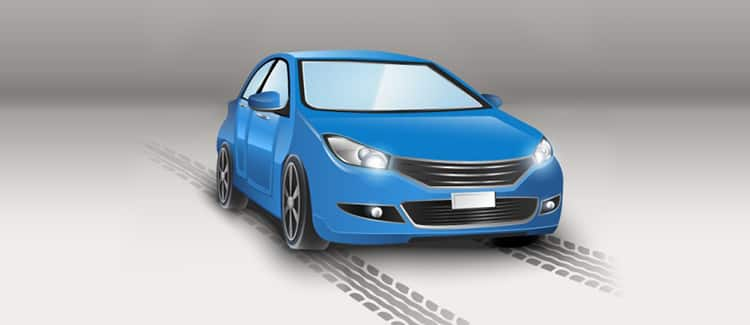
- City & RTO
- Car Brand
- Car Model
- Car Fuel Type
- Car Variant
- Registration Year
-
Renew policy in 2 minutes*
-
21+ Insurers to choose
-
1.2Cr+ Vehicles Insured
We have found best plans for you!! Our advisor will get in touch with you soon.
- Home

- Motor Insurance

- Car Insurance

- Insured Declared Value (IDV)
IDV Calculator
An IDV calculator is an online tool that vehicle owners can use to determine the market value of their vehicle. With this tool, they can estimate the ideal amount for their car insurance premium based on factors such as the vehicle's age, make and model, and rate of depreciation.
What is IDV in Car Insurance?
The Insured Declared Value (IDV) is the maximum amount an insurance company pays to the policyholder if their insured vehicle is stolen or suffers a total loss. This value is calculated by deducting the insured vehicle's depreciation from the manufacturer's listed selling price of the car based on its age and condition.
The registration and insurance costs are not included in IDV. Moreover, any accessories that are not company-fitted are also not covered under the IDV. However, policyholders have the option to include these accessories in their coverage by paying additional charges.
How to Calculate IDV for Car Insurance?
IDV is calculated based on the selling price of the car decided by the manufacturer, considering its depreciation. The formula to derive the insured declared value is mentioned below.
IDV = (Car’s selling price - Depreciation value) + (Cost of accessories - Depreciation value of these parts)
This IDV calculation formula is for a new car equipped with accessories added after purchase. If there are no extra accessories, the IDV calculation is as follows:
IDV = Car’s selling price - Depreciation value of the car
Alternatively, you can use the IDV calculator for car on Policybazaar.com to check your vehicle's market value. Here is the simple process:
- Step 1: Enter your car's registration number.
- Step 2: Select your vehicle details like make, model, fuel type, variant, and registration year.
- Step 3: Now, click 'Check IDV' to get the recommended IDV for your car.
Car Depreciation Rates for IDV Calculation
The depreciation value of a car is set by the Insurance Regulatory and Development Authority of India (IRDAI). Here is the table showing the car depreciation rates:
| Age of the Vehicle | % Depreciation for adjusting IDV |
| Less than 6 months | 5% |
| 6 months to 1 year | 15% |
| 1 to 2 years | 20% |
| 2 to 3 years | 30% |
| 3 to 4 years | 40% |
| 4 to 5 years | 50% |
For vehicles aged above 5 years, IDV is calculated by mutual agreement between the insurer and the car owner based on the vehicle's condition.
Factors that Determine the IDV of a Car
Cited below are the key factors that impact a car's insured declared value:
- Vehicle Age: A car's age is one of the most important factors that impact its IDV. The older the vehicle is, the lower its market value, and thus IDV.
- Make and Model: Another factor that affects a car's IDV is its type, such as hatchbacks, sedans, SUVs, MUVs, etc., each with unique features and, consequently, different IDVs.
- Depreciation Value: Car depreciation is the reduction in its market value over time. As a car ages, its value continues to decrease.
- Location of Registration: The city where a car is registered also influences its IDV. A car registered and running in a metropolitan city faces more risks than one in a tier-2 city, leading to differences in IDVs.
Explore More Under Car Insurance
- Motor Insurance
- Car Insurance
- Zero Dep Car Insurance
- Compare Car Insurance
- Car Insurance Calculator
- Third Party Car Insurance
- Comprehensive Car Insurance
- Car Insurance Companies
- Own Damage Car Insurance
- Electric Car Insurance
- Pay As You Drive Insurance
- Renew Expired Car Insurance
- Used Car Insurance
- NCB in Car Insurance
Why Should You Care About Your Car’s IDV?
Your motor insurance policy is directly linked to your car's IDV. The higher your car's IDV, the higher is its risk, leading to a costly car insurance premium. However, choosing a lower IDV just to cut down on your premium costs is also not recommended.
If you opt for a lower IDV, you may incur significant financial losses if your car gets stolen or completely damaged. This is because your insurer will only compensate you based on the IDV fixed at the start of your policy.
Therefore, it is crucial to carefully select the IDV while renewing car insurance. You can also use an IDV calculator to determine the right IDV that matches the true value of your car.
Advantages and Disadvantages of High/Low IDV
The table below lists the advantages and disadvantages of choosing a higher or lower IDV for your car:
| Nature of IDV | Advantages | Disadvantages |
| High IDV | Higher compensation in case of vehicle theft or total loss | Higher insurance premium |
| Low IDV | Lower insurance premium | Lower compensation in the event of car theft or total loss, leading to substantial financial losses |
How to Choose the Right IDV for Your Car?
Here are a few tips you can consider to select an ideal IDV for your car:
- Don't Underestimate Your Car's Value: If you choose a lower IDV for your car, you might end up receiving a lesser amount at the time of claim. Hence, you should choose an IDV that's close to your car's actual market value.
- Think About Future Depreciation: As your car gets older, its market value decreases. Therefore, select an IDV considering the future depreciation of your car.
- Use Online Tools: You can find car IDV calculators online on many insurance websites or Policybazaar.com. Simply enter your car details, and this tool will provide an estimated IDV for your car.
- Ensure Adequate Coverage: It is highly recommended that you provide an accurate IDV for optimal protection. Choosing an incorrect IDV might lead to your claim rejection.
IDV Calculator FAQs
-
Q1. What is IDV in car insurance?
Ans: The IDV full form is Insured Declared Value, which is a vehicle's current market value. It is the highest amount an insurance company compensates to the policyholder in the event of total loss or theft of the insured vehicle. -
Q2. How to calculate IDV for car?
Ans: You can use the following formula to calculate IDV of your car:IDV= (Selling price of the car - car's depreciation value) + (Any purchased accessories - depreciation of accessories).
Alternatively, you can visit Policybazaar.com and use the online IDV calculator to estimate your car's market value.
-
Q3. What is the depreciation rate for cars?
Ans: A car's depreciation is based on its make & model, age, registration location, etc. Rates for depreciation are fixed by the Insurance Regulatory and Development Authority of India (IRDAI) and are as follows:- Less than 6 months: 5%
- 6 months to 1 year: 15%
- 1 to 2 years: 20%
- 2 to 3 years: 30%
- 3 to 4 years: 40%
- 4 to 5 years: 50%
-
Q4. What should be the ideal IDV?
Ans: Your car's IDV should be close to its actual market value. For a new car, the IDV is its invoice value, and as the car ages, this value decreases. Ideally, a car's IDV should be sufficient to cover the total loss or damage in the event of an accident. -
Q5. Can I choose my own IDV?
Ans: When you buy or renew car insurance, you can increase or decrease your car's IDV by 15% from the value set by your car insurance company.
Explore add-ons for your car insurance
Car Insurance for Popular Brands in India
Find similar car insurance quotes by body type


































Car Insurance Articles
- Recent Article
- Popular Articles

Can I Add Personal Accident Cover Later if I...
Insurance providers allow you to add a Personal Accident (PA)
Read more
Car Insurance Renewal in India: A Complete Guide
Have you found yourself delaying (and eventually forgetting) about
Read more
New Car Insurance Guide: What to Know Before...
More than 43 lakh new vehicles were sold in India in 2024 alone
Read more
Why There's a Rising Demand for Usage‑Based Car...
With the growing number of motorists in India demanding fairer
Read more
Car Insurance for Self-Driving or Autonomous...
Autonomous or self-driving vehicles are the future, as all major
Read more
How to Get Your Duplicate Car Insurance Policy...
Losing your car insurance documents can be daunting, especially when you need them in an emergency or for a routine
Read more
How to Transfer Car Insurance Policy?
Buying a car, even second-hand, is a big decision, and often, people overlook the essential documentation involved
Read more
Get Vehicle Fitness Certificate from RTO...
A vehicle fitness certificate (FC) ensures that a motor vehicle is fit to be driven on roads. As per the Indian
Read more#Rs 2094/- per annum is the price for third-party motor insurance for private cars (non-commercial) of not more than 1000cc
*Savings are based on the comparison between the highest and the lowest premium for own damage cover (excluding add-on covers) provided by different insurance companies for the same vehicle with the same IDV and same NCB. Actual time for transaction may vary subject to additional data requirements and operational processes.
+Savings are based on the maximum discount on own damage premium as offered by our insurer partners.
##Claim Assurance Program: Pick-up and drop facility available in 1400+ select network garages. On-ground workshop team available in select workshops. Repair warranty on parts at the sole discretion of insurance companies. Dedicated Claims Manager. 24x7 Claim Assistance.






























